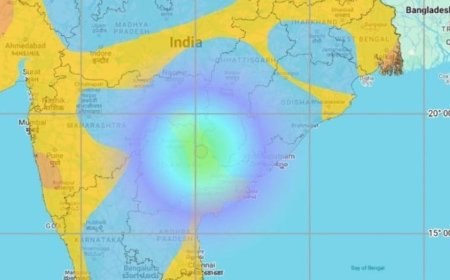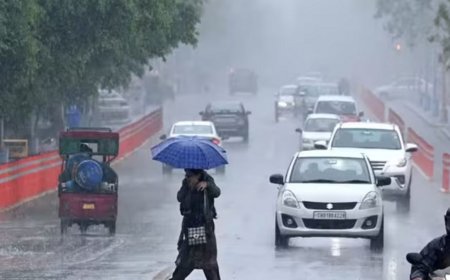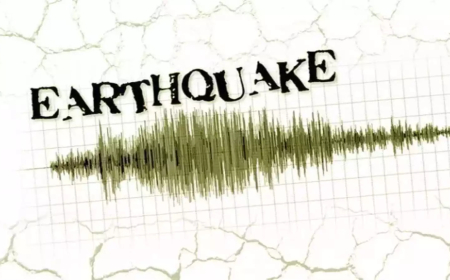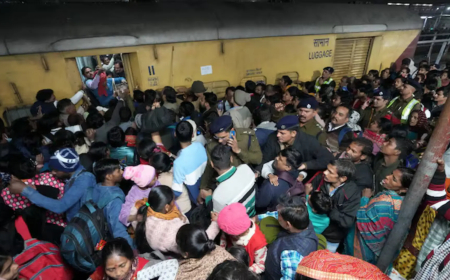Saudi Arabia Stops Entry Visas for 14 Countries Including India and Pakistan Over Hajj Safety Concerns
Saudi Arabia has paused visa services for 14 nations, including India and Pakistan, because of concerns related to crowd control and security during Hajj. Read the full reason behind this unexpected move and what it means for pilgrims. Saudi Arabia has put a stop to visa applications for 14 countries, including India and Pakistan, due to concerns about safety during Hajj. Find out the full list and what this decision means.

Saudi Arabia Suspends Visa Approvals for 14 Nations — Here's Why It Includes India and Pakistan
Saudi Arabia has made headlines by temporarily stopping entry visas for 14 countries, including India, Pakistan, Bangladesh, and Nigeria. This big move is linked to safety measures around the upcoming Hajj pilgrimage, one of the largest religious gatherings in the world.
This unexpected step has raised many questions, especially among hopeful Hajj pilgrims and the Muslim communities in these affected countries. Let’s break down the key points, understand the reason behind this decision, and what it means for millions of people.
1. Why Has Saudi Arabia Paused These Visas?
-
The main reason is concerns over public safety and crowd control during Hajj.
-
Saudi authorities want to avoid past incidents like overcrowding, stampedes, or mismanagement that have caused harm to pilgrims.
-
The country aims to ensure that Hajj remains safe, smooth, and well-managed for all.
2. Which Countries Are on the List?
-
Though official details are still emerging, reports suggest that 14 countries have been affected.
-
The nations include:
India, Pakistan, Bangladesh, Nigeria, Chad, Sudan, Iraq, Ethiopia, Iran, Yemen, Somalia, Kenya, Eritrea, and Libya.
3. India and Pakistan: The Biggest Shocks
-
India and Pakistan contribute a large number of Hajj pilgrims every year.
-
This pause in visa services has left many families disappointed and confused, especially those who had already started their Hajj preparations.
-
Travel agencies and Hajj operators in both countries are seeking urgent clarification.
4. Overcrowding and Previous Tragedies a Major Concern
-
Hajj gathers millions of people in a short period, leading to high chances of overcrowding.
-
In the past, tragic incidents like stampedes have occurred — for example, the 2015 Mina stampede which led to hundreds of deaths.
-
To avoid repeating such incidents, Saudi Arabia wants better control over the number of incoming pilgrims.
5. No Clear Timeline for Resumption Yet
-
Saudi officials have not shared a specific date on when visa services will restart for these countries.
-
The decision is described as temporary, but it may extend depending on how the planning for Hajj progresses.
-
Affected countries are currently in talks with Saudi authorities to find a solution.
6. Not Just Safety — Possible Political and Logistical Factors Too
-
While safety is the primary reason, experts believe there may be other behind-the-scenes factors.
-
This could include logistical limits, diplomatic tensions, or resource planning issues related to large groups.
-
In some cases, visa suspensions also reflect bilateral relations between countries.
7. Local Tour Operators Face Huge Losses
-
Hajj travel agents in India, Pakistan, and Bangladesh have already spent money on bookings, arrangements, and packages.
-
With the visa halt, they face major financial losses and cancellations.
-
Many operators are demanding government intervention and compensation.
8. Pilgrims Left Heartbroken and Uncertain
-
People who have been saving money for years to go on Hajj now face disappointment.
-
Some had already completed paperwork, booked flights, and paid for travel packages.
-
This sudden change has left many emotionally and financially affected.
9. Saudi Arabia’s Efforts to Modernize Pilgrimage Systems
-
In recent years, Saudi Arabia has worked to digitize and streamline the Hajj process.
-
The introduction of e-visas, digital registrations, and smart crowd control systems is part of this plan.
-
Experts say that the visa ban might be a step to reset the system for a better and safer experience.
10. How Are Affected Countries Responding?
-
Governments of India, Pakistan, and others have approached Saudi diplomats to seek clarification and request reconsideration.
-
Some are urging Saudi Arabia to review the list and allow a limited number of pilgrims under strict safety rules.
-
So far, no rollback has been announced.
11. Religious Leaders Also Voice Concerns
-
Religious heads from various communities have urged for peaceful handling of the issue.
-
They are advising followers to remain patient and pray for a quick resolution.
-
Some leaders believe this situation might resolve before Hajj season officially begins.
12. Travel Alternatives Being Explored
-
Some Hajj travelers are now looking for alternative routes, such as going through approved third countries, though this remains uncertain.
-
However, Saudi rules are strict on official Hajj visas, so this may not work for everyone.
13. What Can Affected Pilgrims Do Now?
-
Stay in touch with official government Hajj committees or Ministry of External Affairs in your country.
-
Avoid trusting unverified travel agents who may make false promises about bypassing visa rules.
-
Keep an eye on announcements from the Saudi Hajj Ministry or your country’s embassy.
14. This Isn’t the First Time Saudi Has Made Such a Decision
-
Saudi Arabia has previously restricted visas during times of war, health crises (like COVID-19), or crowd risks.
-
The Hajj 2020 and 2021 seasons were also limited due to the pandemic.
-
The kingdom often puts safety first, even if it means tough decisions.
15. What Happens If Visa Services Don’t Resume in Time?
-
If the ban continues, many pilgrims will miss their once-in-a-lifetime chance to perform Hajj this year.
-
They may be given priority in future Hajj slots or get full refunds from official operators.
-
Governments may introduce special schemes or quotas for the next year to balance the impact.
Final Thoughts:
The temporary suspension of visas by Saudi Arabia for 14 countries — including major Hajj contributors like India and Pakistan — is a serious step taken in the name of safety and crowd control. While it has created widespread confusion and disappointment, it also highlights how important it is to maintain order during one of the world’s largest religious events.
For now, patience, verified information, and official channels are the best ways to stay informed. As the Hajj season approaches, more updates are expected, and many are hopeful that the decision may be reconsidered soon.
Would you like this turned into a video script or infographic as well? Let me know how you'd like to repurpose this content!
What's Your Reaction?

























































